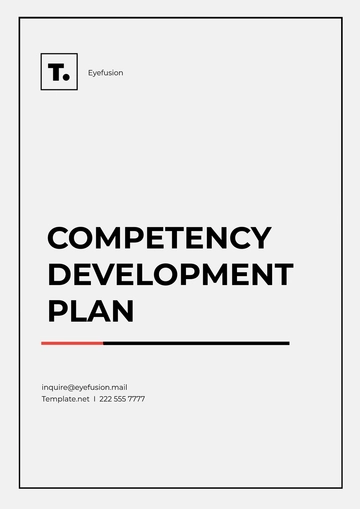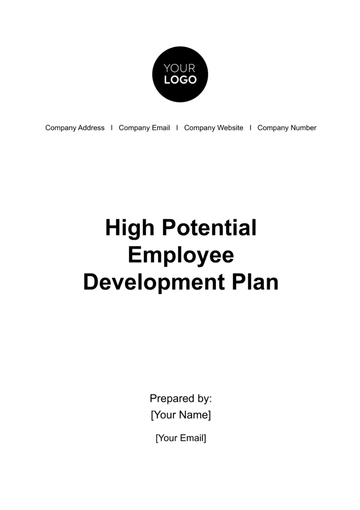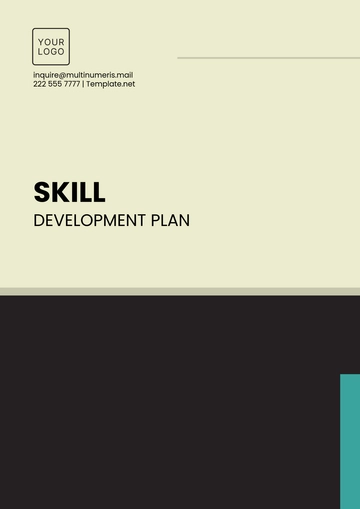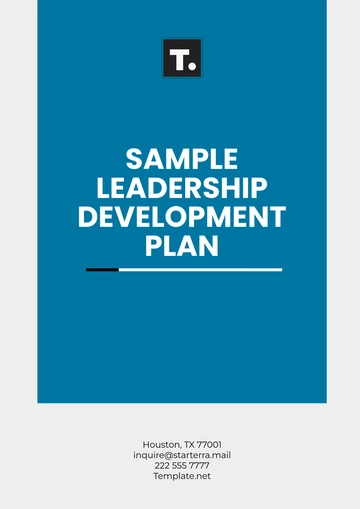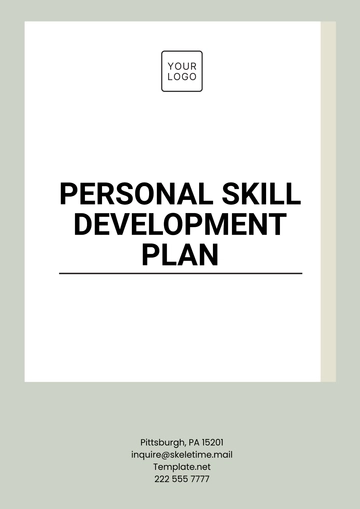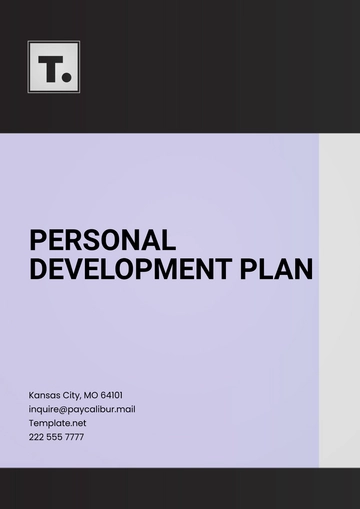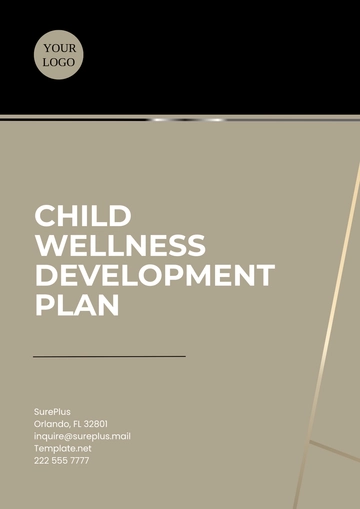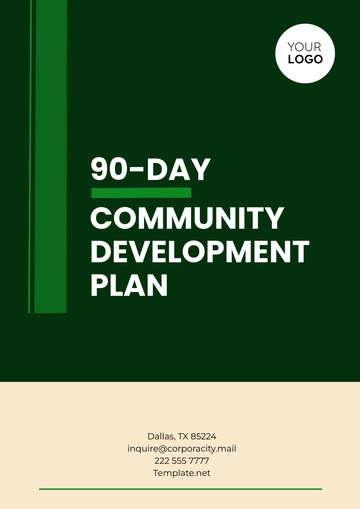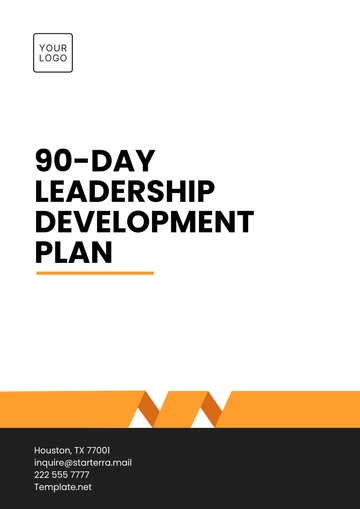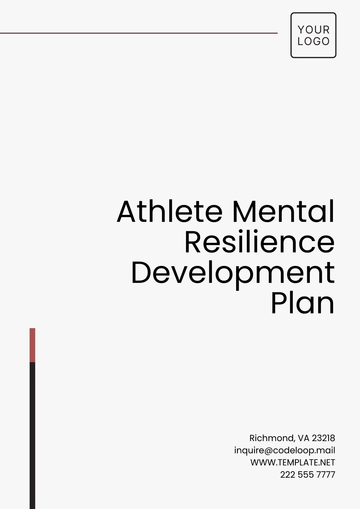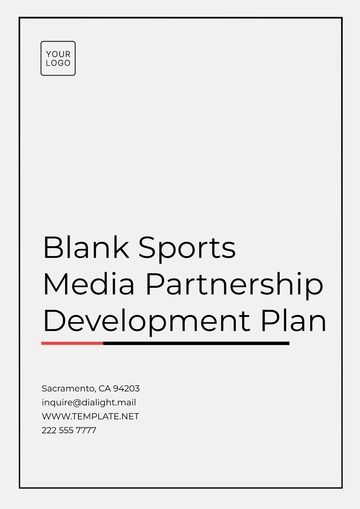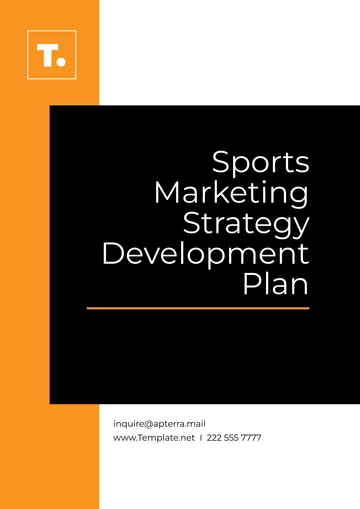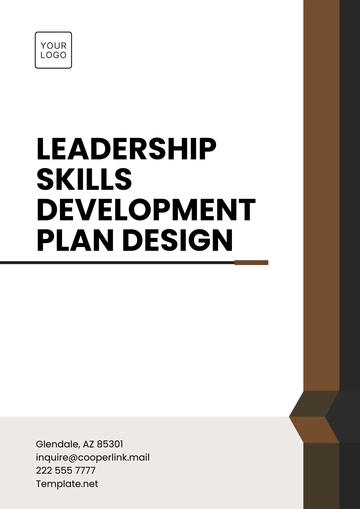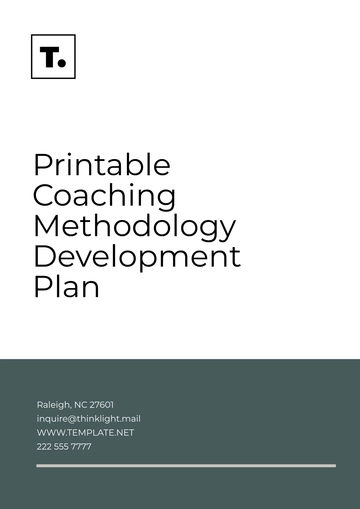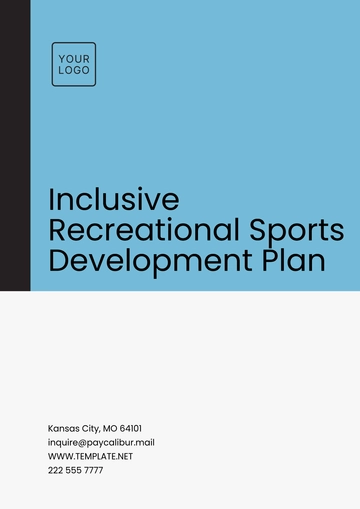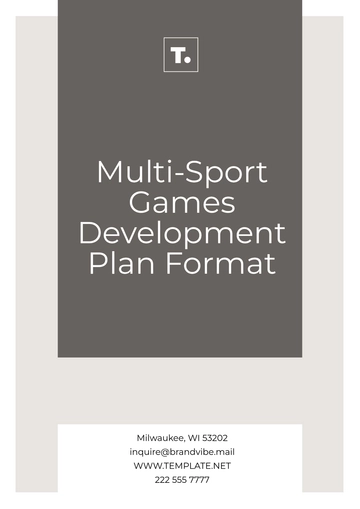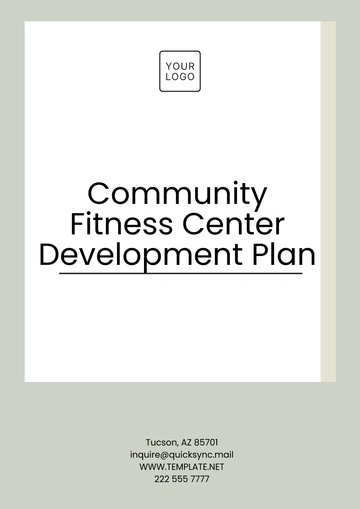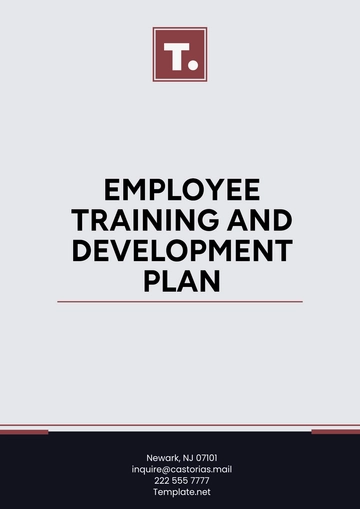Free Printable Coaching Methodology Development Plan
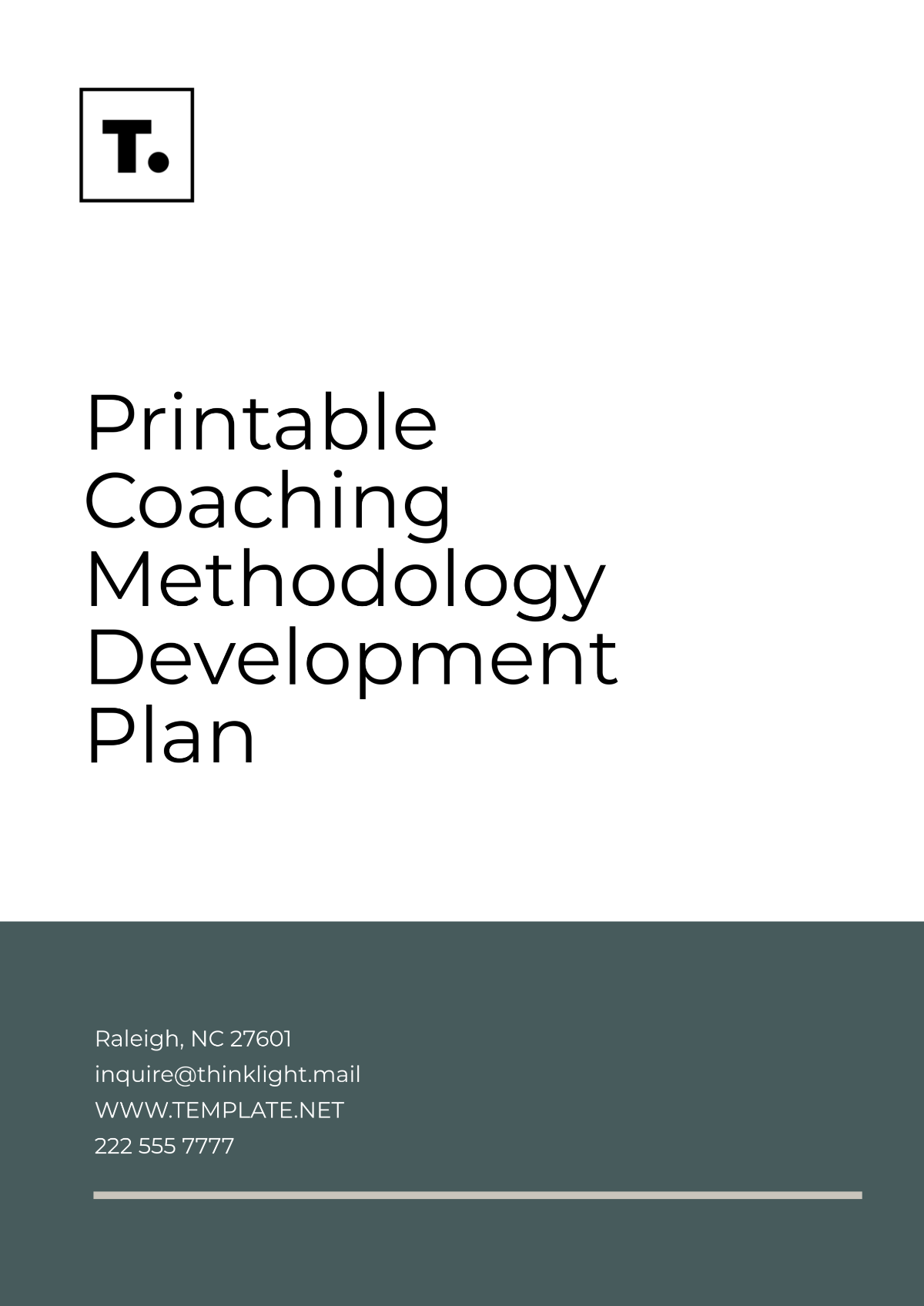
Prepared by: [Your Name]
Date: June 16, 2050
1. Executive Summary
This development plan outlines a strategic approach to creating a comprehensive, evidence-based coaching methodology. The objective is to establish a structured, adaptable, and scalable coaching framework that maximizes the effectiveness of coaching sessions across diverse domains and scenarios. By integrating proven practices, leveraging technology, and focusing on continuous feedback, the methodology aims to enhance client outcomes, improve coaching efficiency, and increase accessibility.
2. Introduction
The rising demand for personalized coaching highlights the need for a clear methodology. Effective coaching transforms individuals and organizations by tackling challenges and encouraging growth. This plan seeks to develop a scalable framework using evidence-based practices, technology, and continuous improvement to optimize coaching outcomes across leadership, career, personal growth, and performance.
3. Development Objectives
The core objectives of this development plan are as follows:
Standardization: Establish a universally applicable, standardized coaching framework adaptable to diverse needs, ensuring consistency in outcomes and processes.
Evidence-Based Integration: Incorporate research-backed techniques and best practices to create a methodology grounded in reliable, proven principles.
Technology-Driven Efficiency: Leverage technology to enhance coaching delivery, expand reach, and improve tracking and performance evaluation.
Continuous Improvement: Develop a feedback loop and monitoring system that fosters ongoing refinement of the methodology based on participant experiences and outcomes.
Scalability: Ensure that the methodology can be adapted for different sizes and types of coaching engagements, from one-on-one sessions to large-scale coaching initiatives.
4. Key Components
4.1 Needs Assessment
A thorough needs assessment will identify the gaps, challenges, and opportunities for coaching improvement. Steps to ensure a comprehensive understanding of needs include:
Stakeholder Engagement: Conducting surveys and interviews with key stakeholders, including clients, coaches, and organizational leaders, to gather insights.
Competency Mapping: Analyzing the competencies, skills, and gaps that coaches and clients may face, and identifying the most relevant areas for intervention.
Current Practice Review: Assessing current coaching practices and their effectiveness to inform areas of focus for the new methodology.
4.2 Methodology Structure
The coaching methodology will be organized into four main phases:
Preparation: Initial assessment, goal setting, and defining the objectives of the coaching engagement.
Execution: Delivering coaching sessions using tailored strategies and tools suited to the client's unique needs.
Evaluation: Monitoring the effectiveness of the sessions, including performance metrics and participant feedback.
Reflection: Review the coaching process to analyze results, identify areas for improvement, and refine the methodology as needed.
5. Integration of Evidence-Based Practices
To ensure the coaching methodology is grounded in effective strategies, the following evidence-based practices will be incorporated:
SMART Goal Setting: Encouraging the creation of Specific, Measurable, Achievable, Relevant, and Time-bound goals that provide clear direction and measurable progress.
Client-Centered Coaching: Fostering an environment where the client's unique needs, perspectives, and goals drive the coaching process, rather than a one-size-fits-all approach.
Continuous Monitoring and Adjustment: Regular tracking of client progress to adjust coaching strategies and ensure optimal outcomes. This includes revisiting goals and modifying approaches as necessary.
6. Leveraging Technology for Coaching
Technology will be leveraged to enhance the scalability and impact of the coaching methodology. The integration of technology will include:
Digital Platforms: Enabling virtual coaching sessions through user-friendly, secure platforms that allow for scheduling, video conferencing, and seamless communication.
Artificial Intelligence (AI): Using AI-driven tools to monitor client progress, track milestones, and provide personalized coaching recommendations based on real-time data.
Data Analytics: Implementing tools to gather and analyze session data, identifying patterns and insights to improve coaching effectiveness and outcomes.
7. Implementation Timeline
The development and rollout of the coaching methodology will be completed over 12 months, with the following key milestones:
Month | Milestone |
|---|---|
1-2 | Conduct needs assessment and gather feedback from stakeholders. |
3-4 | Design the initial coaching framework, incorporating evidence-based practices. |
5-6 | Develop and integrate technological solutions, including digital platforms and AI tools. |
7-8 | Conduct pilot testing with a small group of coaches and participants; gather feedback for refinement. |
9-10 | Roll out the full methodology to a wider audience; provide training and resources for coaches. |
11-12 | Evaluate the methodology's effectiveness, gather feedback, and refine the framework for broader application. |
8. Evaluation and Monitoring
Ongoing evaluation and monitoring will be integral to ensuring the coaching methodology's effectiveness and adaptability. The following strategies will be used:
Regular Participant Feedback: Collecting structured feedback through surveys and interviews to understand participant satisfaction and effectiveness.
Performance Metrics: Tracking goal attainment rates, progress on specific competencies, and overall performance improvements to gauge the impact of coaching.
Case Studies and Success Stories: Documenting qualitative insights from case studies and success stories to highlight the practical impact of the methodology.
Adjustments and Improvements: Using data-driven insights to refine the methodology continuously, addressing any emerging challenges or new opportunities for improvement.
9. Risk Management
A risk management plan will be put in place to mitigate potential challenges throughout the development and implementation phases. Key risks and their mitigation strategies include:
Stakeholder Resistance: Some stakeholders may be resistant to new coaching methods. Mitigation will involve clear communication, stakeholder engagement, and demonstrating the benefits through pilot programs.
Technology Integration: Technical challenges may arise when integrating AI tools or digital platforms. These will be addressed by thorough testing, user training, and dedicated technical support.
Evaluation Limitations: Some aspects of coaching success may be difficult to quantify. A mixed-methods evaluation approach (quantitative and qualitative) will ensure a comprehensive assessment.
10. Conclusion
The development of a robust, evidence-based coaching methodology is an essential initiative to enhance the quality, accessibility, and impact of coaching services. By integrating best practices, leveraging technology, and maintaining a focus on continuous feedback, this methodology aims to empower both coaches and clients. The successful execution of this plan will result in a flexible, scalable coaching framework capable of meeting diverse client needs, fostering lasting growth, and ensuring measurable results.
- 100% Customizable, free editor
- Access 1 Million+ Templates, photo’s & graphics
- Download or share as a template
- Click and replace photos, graphics, text, backgrounds
- Resize, crop, AI write & more
- Access advanced editor
The Printable Coaching Methodology Development Plan Template from Template.net offers a fully editable and customizable solution for coaches. Tailor it to fit your unique approach with ease, using our Ai Editor Tool. This flexible template allows you to adjust content, structure, and design, ensuring a personalized coaching plan that suits your needs perfectly.
